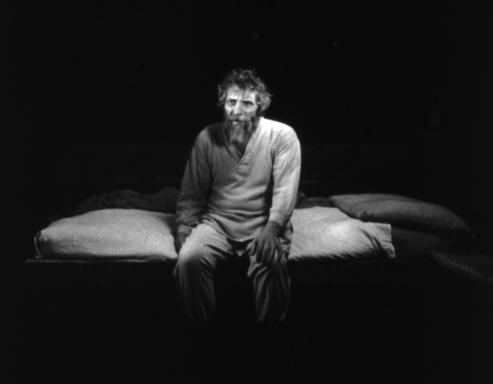Feature – International / UK Premiere
Showing @ Filmhouse 1, Sat 18 June @ 19:10 & Sun 19 June @ 16:45
Béla Tarr / Hungary, France, Germany, Switzerland, United States of America / 2010 / 146 mins
Sometimes it’s a relief when a heavy-duty film is wrapped in a graceful charm unparalleled in a lot of cinema: Béla Tarr’s movie is a philosophical fable concentrating on the borderline nihilistic underpinnings of rural, unrefined life. When Friedrich Nietzsche witnessed the whipping of a horse in 1889 in Turin, Italy, he flung his arms around the animal to protect it, only to collapse, spending his remaining years in near silence and solitude. With Tarr notorious for his philosophical tendencies, this final film of his explores the fictionalised life of Ohlsdorfer (János Derzsi), the man who whipped the horse, and gives the director a chance to sign off in both academic loyalty and cinematic beauty.
With a monochrome attractiveness only true to the director’s previous work, Tarr reflects an austere, routine existence which relies on necessity. Repetitive daily chores, analogous eating patterns and monotonous work duties all impinge on the film’s flow as it can be difficult to latch on to substance in both the characters and the story. Yet these depictions can make the film’s point easy to miss, that is, of futility and punishment. Nietzsche was rumoured to have gone mad after witnessing the whipping of the horse, yet Ohlsdorfer and his daughter live in constant torture, the torture of a lesser life which Nietzsche so frequently criticised and patronised in his writing on elitist understanding and comprehension. Though the message Tarr is trying to get across can sometimes get lost in the deathly silent home life of the father and daughter, what’s left is a restrained beauty in which action takes precedent over dialogue, and an almost maddeningly oblique soundtrack with chimes and horns provides the insulation to this Nietzschean homage.


Comments